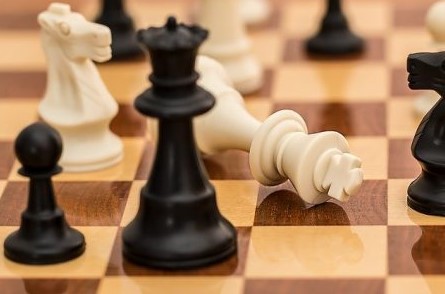
In the world of competitive gaming, success is often determined not just by reflexes or hand-eye coordination, but by the application of a solid gaming strategy. Whether you’re diving into a real-time strategy (RTS) game, exploring massive open-world games, or competing in multiplayer online battle arena (MOBA) games, understanding and mastering strategy can make all the difference between victory and defeat. Every game has its nuances and challenges, and those who truly excel are those who can adapt, outthink, and outmaneuver their opponents. This article explores how players can hone their gaming strategy to become more competitive, whether playing for fun or striving to climb the ranks in the gaming community.
Understanding the Importance of Gaming Strategy
In many competitive games, victory isn’t just about having faster reflexes or better skills. It’s about making smart decisions, anticipating your opponent’s moves, and executing a well-thought-out plan. A gaming strategy isn’t just a set of actions; it’s a mindset that helps players optimize their decision-making, resource management, and tactical approaches. Here’s why strategy is so important:
1. Maximizing Efficiency
A good gaming strategy helps players maximize their in-game efficiency. In strategy-based games, every move counts, and being deliberate and calculated can help you achieve your objectives with minimal waste of time or resources. For instance, in RTS games like Starcraft or Age of Empires, players need to manage resources carefully, build structures at the right time, and create units in a timely manner to overpower their opponents. Without an effective strategy, players may waste valuable resources, which can be detrimental in the long run.
2. Outthinking Your Opponent
In multiplayer games, the most successful players are often those who can predict their opponents’ actions and make decisions accordingly. Whether you’re playing a fast-paced shooter or a card game, being able to read your opponent’s tactics and make counter moves is a crucial part of any gaming strategy. Understanding how your opponent operates, their weaknesses, and their preferences can give you a significant advantage and turn the tide in your favor.
3. Adapting to Changing Circumstances
The gaming world is constantly evolving, with developers releasing patches, new features, and updates that can change the balance of power. A successful strategy is one that can adapt to these changes. For example, in games like League of Legends or Fortnite, a patch or update can drastically alter the effectiveness of certain characters, weapons, or tactics. Players who can quickly adjust to these changes, refine their strategies, and anticipate future updates will have a significant edge over those who don’t.
Key Elements of a Winning Gaming Strategy
Mastering a gaming strategy requires understanding several key elements that contribute to success in a game. These elements vary from game to game, but in general, the following strategies can apply across different genres:
1. Knowledge of the Game Mechanics
The foundation of any strong gaming strategy is a deep understanding of the game mechanics. Whether you’re playing a MOBA like Dota 2 or a first-person shooter (FPS) like Call of Duty, knowing the rules, abilities, strengths, and weaknesses of the game is essential. This includes understanding things like cooldowns, attack ranges, weapon characteristics, movement mechanics, and environmental factors.
For example, in a game like Overwatch, each hero has unique abilities, and understanding how to exploit these abilities within the context of a team’s strategy is essential. Players who understand game mechanics can predict enemy actions, capitalize on opportunities, and avoid common pitfalls.
2. Resource Management
In games that feature elements of resource collection and management, such as RTS games, managing resources like time, in-game currency, or materials is crucial. A strong gaming strategy requires efficient allocation of these resources to maximize your potential. In World of Warcraft, players need to balance their focus between leveling up, gathering materials, and preparing for raids. Similarly, in a game like Clash of Clans, managing your resources effectively and upgrading your base at the right time is key to progressing efficiently.
Poor resource management often leads to wasted time, missed opportunities, and vulnerability to opponents, making it a critical aspect of competitive play.
3. Teamwork and Communication
For multiplayer team-based games, effective teamwork and communication are often the difference between success and failure. In games like Counter-Strike: Global Offensive or Rainbow Six Siege, clear communication with your teammates can help execute strategies, alert teammates to threats, and coordinate attacks. A gaming strategy that involves good communication ensures that everyone is on the same page and working toward a common goal.
It’s also essential to understand team composition in games like League of Legends. Each role, such as ADC (Attack Damage Carry), support, and jungler, plays a vital part in the team’s overall strategy. Knowing when to engage, retreat, or support your teammates can make a huge difference.
4. Practice and Mastery
No amount of strategy can make up for lack of skill. It’s essential to regularly practice and improve the basic mechanics of the game. Whether it’s improving your aim in a shooter or learning how to control your character’s movements in a fighting game, mastery over the core mechanics is foundational to any gaming strategy. Only when you’re comfortable with the game’s mechanics can you begin to incorporate more advanced strategies and outplay your opponents.
Advanced Gaming Strategies: Moving Beyond the Basics
As you gain experience and mastery over the fundamental aspects of gaming, it’s time to think beyond the basics and develop more sophisticated strategies. This often involves creating a long-term plan and learning how to adapt it as the game progresses.
1. Mind Games and Psychological Tactics
In competitive gaming, the mental aspect of the game is just as important as the technical one. Some players employ psychological tactics to confuse, frustrate, or manipulate their opponents. This could involve “baiting” an opponent into making a poor decision, playing unpredictably to avoid being read, or bluffing in strategy games like Poker or Hearthstone. These mind games can throw off even the most well-prepared opponents, making them second-guess their moves and giving you the upper hand.
2. Timing and Map Control
In real-time games and shooters, timing and map control are crucial to success. Knowing when to strike, when to retreat, and when to control key areas of the map can dictate the flow of the game. In Fortnite, for example, controlling high ground and positioning yourself optimally can give you a major advantage over enemies. Similarly, in League of Legends, timing objectives like dragon or Baron kills can turn the tide of a game, making map awareness and timing essential elements of a successful strategy.
3. Study and Learn from the Best
One of the most effective ways to refine your gaming strategy is by studying the best players in your chosen game. Top-tier players often have strategies and techniques that are unique, insightful, and effective. Watch professional streams or gameplay videos, take note of their strategies, and try to incorporate those tactics into your own playstyle. By learning from the best, you can avoid common mistakes and speed up your learning curve.
Conclusion
Mastering a gaming strategy takes time, dedication, and a deep understanding of the game you’re playing. From learning the fundamentals to perfecting advanced techniques, a well-crafted strategy can significantly enhance your chances of success in any game. Whether you’re competing for fun or striving to climb the competitive ladder, understanding the nuances of your game, honing your skills, and developing a flexible and adaptive strategy will help you gain the edge over your opponents. By consistently practicing and refining your approach, you’ll not only become a more skilled player but also a more strategic one—ultimately mastering the art of winning in your favorite games.
